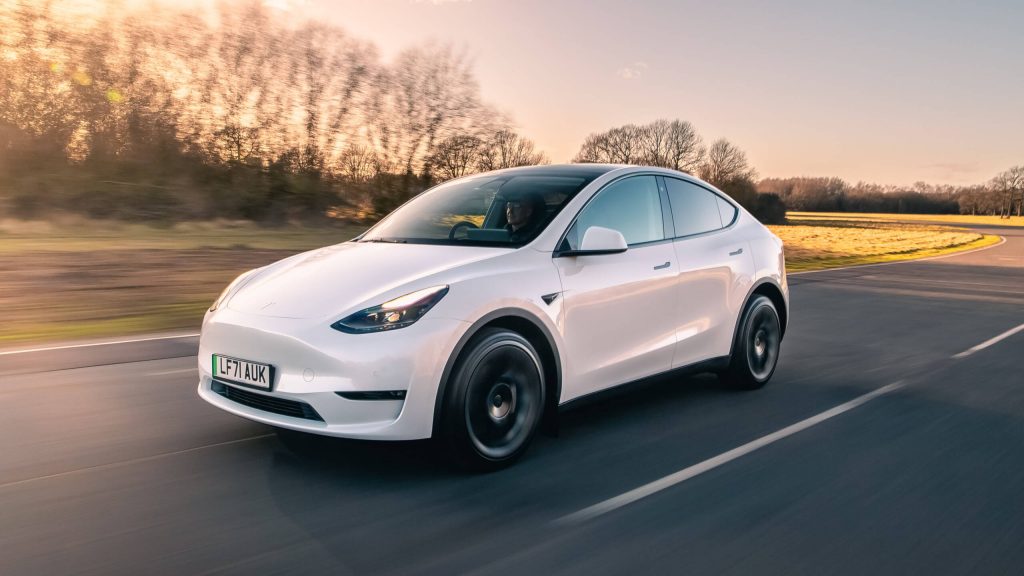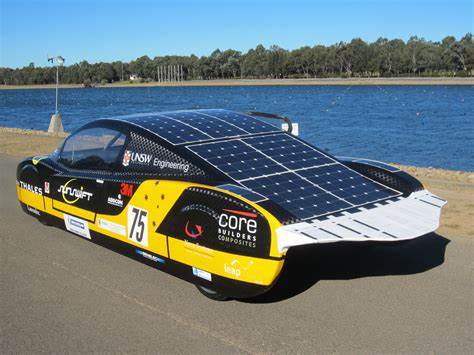As the world shifts toward sustainable living, electric vehicles (EVs) paired with renewable energy sources like solar power are becoming an essential part of reducing carbon footprints and promoting cleaner environments. The growing demand for electric cars, driven by advancements in green technology and government incentives, is accelerating the transition to renewable energy in the automotive industry. By integrating solar power with electric vehicles, consumers can unlock a range of benefits including lower energy costs, reduced dependence on fossil fuels, and a more eco-friendly lifestyle. In this article, we will explore the key advantages of combining electric cars with solar energy, and how this powerful combination is shaping the future of transportation.
Why Choose Electric Cars?
Electric cars offer numerous benefits, making them an attractive alternative to traditional gas-powered vehicles. They are quieter, more energy-efficient, and contribute to significantly fewer emissions. EVs produce zero tailpipe emissions, which means they don’t release harmful pollutants such as carbon dioxide (CO2), nitrogen oxides, and particulate matter into the atmosphere. This reduction in greenhouse gas emissions makes EVs a cornerstone of efforts to combat climate change and air pollution in urban areas.

Moreover, electric vehicles are generally cheaper to maintain than their gasoline counterparts due to fewer moving parts and less reliance on oil changes. The growing network of EV charging stations and the availability of fast-charging infrastructure are making electric cars more practical and accessible than ever.
The Rise of Solar Power and Its Integration with Electric Vehicles
Solar power is one of the most abundant and environmentally friendly renewable energy sources available today. Solar panels harness the energy of the sun, converting it into electricity that can be used to power homes, businesses, and electric vehicles. When combined with electric vehicles, solar power can significantly reduce both the environmental impact and the cost of energy consumption.
One of the most compelling reasons to integrate solar power with electric cars is the ability to charge EVs with renewable energy. By installing solar panels on your home, you can generate your own electricity and use it to charge your vehicle. This combination reduces the need for electricity from the grid, which may still be powered by fossil fuels, further decreasing the environmental impact of driving an electric car.
Key Benefits of Combining Electric Vehicles with Solar Power
1. Reduced Carbon Footprint
When solar panels are used to charge electric vehicles, the overall carbon footprint is significantly reduced. Traditional electricity grids often rely on coal, natural gas, or other fossil fuels that contribute to air pollution and climate change. By using solar energy, which produces no emissions, you effectively eliminate the carbon emissions associated with powering your electric vehicle.
This benefit is especially important for individuals who are concerned about the environment and want to make a more sustainable choice. Pairing solar power with an EV ensures that your transportation remains eco-friendly, from start to finish.
2. Lower Energy Costs
One of the most immediate financial benefits of combining solar power with electric vehicles is the potential for reduced energy costs. Charging an EV from the grid can become expensive, especially during peak hours when electricity rates are higher. By installing solar panels, you can charge your vehicle with electricity you generate yourself, reducing or even eliminating your electricity bill.
In fact, some homeowners have reported a significant decrease in energy expenses by using solar energy to power their homes and EVs. Depending on the size of your solar system and the amount of sunlight your location receives, you may even be able to sell excess electricity back to the grid, further offsetting the cost of your energy usage.
3. Energy Independence and Security
Another compelling advantage of combining electric cars with solar power is energy independence. Many regions rely heavily on fossil fuels or imported energy to power their grids, which can be subject to price fluctuations and supply disruptions. By generating your own electricity through solar panels, you are less reliant on the grid and external energy sources.
For electric vehicle owners, this means you are less exposed to rising electricity prices and energy shortages. Whether it’s due to political instability, natural disasters, or supply chain issues, having a solar-powered EV ensures that you are more secure in terms of energy supply.
4. Increased Resale Value
As the demand for electric cars and renewable energy solutions continues to grow, homes with solar panels and EV charging stations are likely to see an increase in resale value. Buyers are increasingly interested in sustainable living, and homes with energy-efficient features like solar panels and EV chargers are considered more attractive. This makes your investment in solar power and electric vehicles not just a smart environmental choice, but also a financial one.
Additionally, certain government programs and rebates for solar installation may enhance the overall value of your home, making it an even more valuable asset.
5. Contribution to a Greener Future
By combining electric cars with solar power, you are not only reducing your carbon footprint but also contributing to a larger movement towards a sustainable and green future. This combination plays a significant role in reducing global dependence on fossil fuels, promoting the use of renewable energy, and helping communities meet their sustainability goals.
As more individuals and businesses adopt solar-powered electric vehicles, the positive environmental impact will continue to grow, helping society transition towards a cleaner, greener, and more sustainable future.
How to Get Started with Solar-Powered Electric Vehicles
Getting started with solar-powered electric vehicles is easier than ever, thanks to advancements in solar technology and a growing number of EV-friendly infrastructure solutions. Here’s how you can begin the journey:

- Choose the Right Electric Vehicle
There are many electric vehicles available on the market, from budget-friendly options to luxury models. Before purchasing an EV, consider your driving needs, budget, and the charging infrastructure in your area. - Install Solar Panels
The next step is to install solar panels at your home. Choose a reputable solar provider who can design a system that meets your needs. You may need a combination of panels and battery storage to ensure you have enough energy to charge your EV. - Set Up an EV Charging Station
Install an EV charging station at home to make charging your electric vehicle more convenient. Some solar panel providers may offer integrated charging solutions, so ask about this option when purchasing your solar system. - Monitor Energy Usage
Once your system is set up, monitor your energy production and consumption to ensure that you’re maximizing the benefits of solar power. Many solar companies offer apps and tools that allow you to track how much energy you’re producing and how much you’re using to charge your vehicle.
Conclusion
The combination of electric vehicles and solar power offers a wide range of benefits, from reduced carbon footprints and lower energy costs to increased energy independence and contributing to a greener future. As the world transitions to cleaner energy solutions, pairing EVs with solar power is becoming an increasingly popular and practical choice for environmentally conscious individuals.
By integrating these two technologies, you can drive towards a more sustainable future while also enjoying the financial and environmental benefits they bring. With the right setup, charging your electric vehicle using solar energy can be a seamless and efficient way to power your vehicle, reduce your reliance on fossil fuels, and help protect the planet for future generations.

Leave a Reply